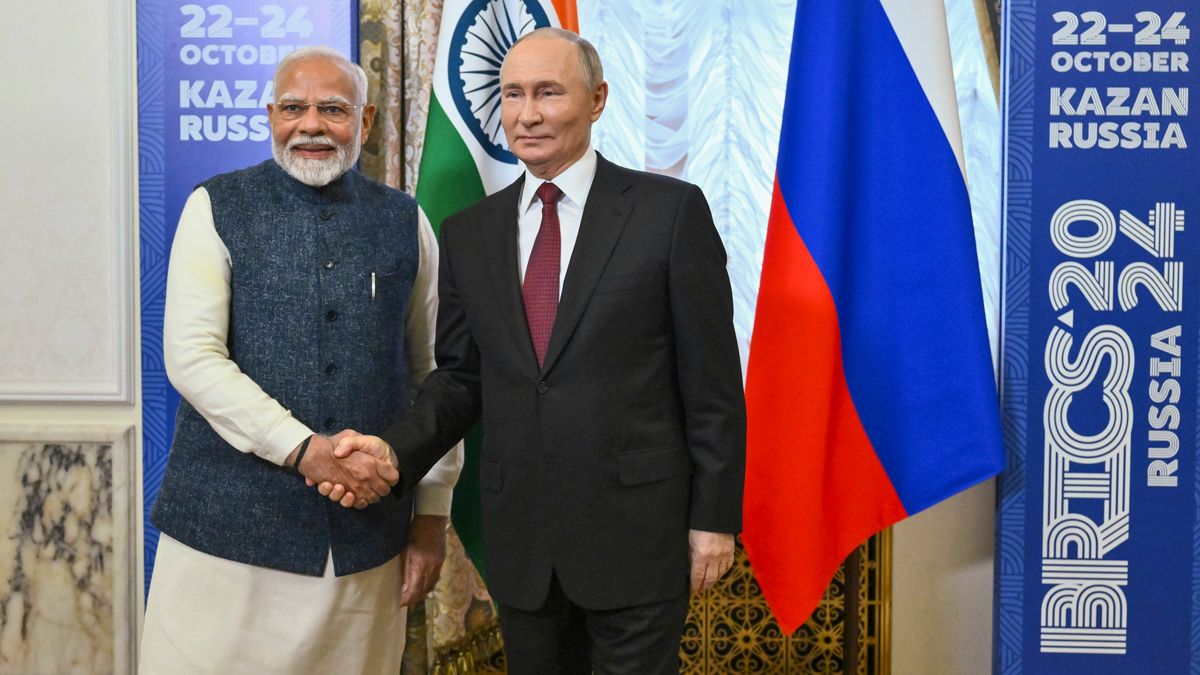PM Modi walks the tightrope at BRICS: Is India's 'strategic autonomy' under strain?

This is to be a BRICS Summit for India like no other in the past, as Prime Minister Narendra Modi readies himself for a diplomatic outreach among the world’s emerging economies during the BRICS Summit in Brazil. In Rio de Janeiro, Modi will have to apply his best diplomatic manoeuvres.
The two-day summit begins on July 6 and takes place amid sagging support for India in its immediate neighbourhood, and among traditionally close friends.
ALSO READ | Pick a team: Why is India beset by US, Russia pressure to choose a side?
A diplomatic policy that pursues the middle path, as well as conveniently-named ‘strategic autonomy’ that prioritises national interest above anything else has resulted in India maintaining a precarious balance among emerging global blocs—one led by the US, and the other being the growing China-Russia axis.
However, there is a growing feeling in diplomatic circles that ‘strategic autonomy’ may have outlived its utility.
Consequently, India has not offered categorical and unambiguous support, either for traditionally close friends Russia or for Ukraine in the ongoing military conflict between the two.
The strategic positioning was such that India could also not clearly support old friend Iran or major military partner Israel when they fought an intense 12-day-long war.
ALSO READ | 'Super Premium Frequent Flier PM running away again': Congress jibes as Modi embarks on 5-nation tour
At the same time, while India is a key member in US-dominated multilateral groupings—like the G20 and the Quadrilateral Security Dialogue (or the ‘Quad’)—it is also a primary member in the BRICS and SCO groupings that have China, Russia, and Iran as members. The obvious ambiguity has landed India in a delicate position.
A dominant share of India’s military equipment is of Russian origin, while New Delhi has pursued close military collaboration with the US.
With Russian President Vladimir Putin and Chinese supremo Xi Jinping not in attendance at BRICS, Modi will meet Russian defence minister Sergei Lavrov, where a contentious point would be India’s support in a joint Quad declaration that had slammed North Korea and expressed concern about nations closely associating with Pyongyang, such as Russia, China and Iran.
The July 1 joint declaration had said: “We express deep concern about countries that are deepening military cooperation with North Korea, which directly undermines the global non-proliferation regime.”
ALSO READ | OPINION | Diplomatic fault lines: How China’s influence is shaping India-Pakistan tensions
On the other hand, US President Donald Trump has been very critical of BRICS, which has de-dollarisation and multi-polarity as its primary planks.
Notably, the 11-member BRICS has been growing in importance since its setting up in 2009. Its nations now account for about 55 per cent of the world’s population and 42 per cent of the world’s GDP. It is also increasingly being seen as a voice for the Global South, of which India has been a keen votary.
In his longest foreign jaunt in more than a decade, PM Modi has already visited Ghana, Trinidad and Tobago, and Argentina before his Brazil trip. He will end the five-nation tour with an official visit to Namibia.
World